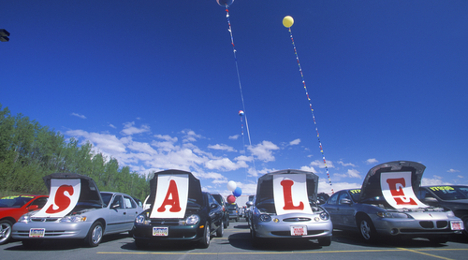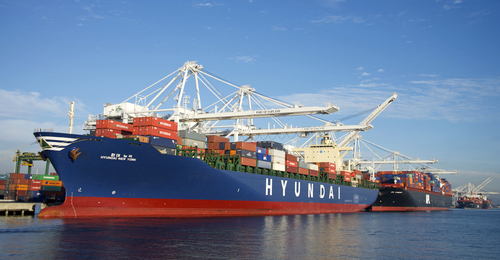In light of the past two years of overwhelming vehicle recall numbers, the Ontario Motor Vehicle Industry Council has released a bulletin encouraging dealers to take heed of disclosure laws.
The organization will also be holding a free webinar discussing the issue this Thursday.
With the recent Canadian recall of 1.2 million vehicles and the U.S. National Highway Traffic Safety Administration (NHTSA) expanded recall of 34 million vehicles with defective Takata airbags, the issue of defective vehicles has rarely been more top-of-mind for the automotive industry.
OMVIC management reminded dealers in the bulletin that they are required to disclose in writing any material facts about a vehicle’s past-use, history or condition to a purchaser or lessee.
And though dealers still can sell a vehicles with an outstanding recall unless a “stop sale” or “stop driving” order applies, recalls related to serious issues of vehicle safety fall under the aforementioned disclosure umbrella.
OMVIC said dealers should disclose outstanding recalls related to serious issues of vehicle safety on the bill of sale.
So, who decides if a recall is material and should be disclosed?
“While the answer to this question could ultimately rest with the courts, OMVIC’s position is that if the manufacturer deems the problem serious enough to issue a safety recall, that problem is likely to be a material fact to a consumer,” OMVIC management reported.
The bottom line: though dealers may sell vehicles with outstanding recalls, OMVIC management said, “Dealers must use due diligence to identify outstanding safety recalls utilizing readily available resources.
“Outstanding recalls for serious safety issues are material facts that, where possible, should be disclosed in writing on the bill of sale or lease contract,” the organization reported. “Dealers should recommend in writing on the bill of sale that the customer register their vehicle with the manufacturer as soon as possible after the purchase to ensure outstanding recalls, and future ones, will be brought to their attention.”
Upcoming Disclosure Webinar
For OMVIC registered dealers who want to make sure to have all their bases covered in regards to recall disclosure, OMVIC will be holding a free webinar Thursday at 10:30 a.m.
The webinar will be presented by senior OMVIC education/inspection staff, as well as guest Bob Pierce, director of member services for the Used Car Dealers Association and instructor of the OMVIC Certification Course.
The webinar will cover the following topics:
- Written disclosures related to a vehicle’s previous use, history and condition
- Material fact – what is it?
- Wholesale contracts – what do you have to tell another dealer about a vehicle’s history or past-use?
- Trade-ins
- Consumer cancellation rights
Participants will have also an opportunity to have questions answered. Space is limited to the first 500 participants that log in. Dealers can register here.
And for dealers looking to learn more about current recalls, OMVIC offered the following suggestions:
- Dealers are encouraged to visit the vehicle manufacturer’s website — many, though not all, make VIN specific recall searches available (partial list here).
- Dealers may also phone the manufacturer to determine the existence of outstanding recalls. A list of phone numbers is provided by Transport Canada here.
- While it doesn’t allow for VIN specific searches (only by make/model/year), Transport Canada provides its online Road Safety Database.
- NHTSA in the U.S. also has a searchable database of U.S. issued recalls.
Ontario’s all-in pricing regulation is still causing trouble for dealers, and the issue is top-of-mind for Ontario Motor Vehicle Industry Council management.
In fact, the organization put out another bulletin on the issue just this spring, reminding dealers “there can be no hidden fees; no surprises.”
And to get a handle on the top regulatory issues facing dealers today, Auto Remarketing Canada caught up with Michael Rothe, director of legal services at OMVIC, at the recent Auto Remarketing Canada Conference in Toronto.
Not surprisingly, perhaps, Rothe said all-in pricing should be No. 1 in dealers’ minds when it comes to regulations, and issues with negative equity and subprime financing are a close second.
“All-in pricing continues to be an issue, and it really requires the industry to work with the regulator because we don’t want to race toward the lowest common denominator,” said Rothe.
With the exception of the harmonized sales tax (HST) and licensing cost — which can be excluded is the advertisement indicates as such — the price advertised should be the price a customer can expect to pay, without any surprises.
Examples of fees or charges that must be included in an advertised price include:
- Freight
- PDI-PDE (pre-delivery inspection/expense)
- Administration (Admin) fee(s)
- Government levies (air tax, etc.)
- OMVIC fee
- Safety and e-test (unless the ad contains a mandated "Unfit Vehicle" or "As-Is Vehicle" statement)
Dealers must also include fees they intend to charge for products or services they have pre-installed on a vehicle, including warranties, tire protection packages and more.
“If everyone is secure with the rule, it creates a more level playing field, and I think is better for the industry overall, not just consumers,” Rothe said.
If dealers already have all-in pricing down, Rothe cited a few financing concerns that may cause some trouble in the future.
“The second most important issue is financing,” said Rothe, “and by that I mean subprime financing, negative equity and loan duration.”
Since the recession and the leasing fall-off, loan terms have been getting consistently longer. And Rothe explained the issue is not in a vacuum — and the auto industry isn’t the only business on this trajectory.
“Again, it is very difficult issue and some ways a more difficult one, because it’s not just an automotive sector. You also have the banks, insurance companies, and other sectors impacting it, so it’s not just OMVIC coming up with a solution to that end,” Rothe said.
OMVIC has reached out to various banking regulators on a provincial and national level to try and craft a “holistic” solution to the financing issue.
“But again, these things take time, and this is a fast developing issue,” said Rothe, and one that the industry, and country, have to work together to solve.
In the automotive business the long duration of vehicle loans have the potential of cannibalizing future sales.
“With extremely lengthy loan terms, dealers are padding their bottom line today at the expense of their bottom line down the road,” Rothe concluded.
The Ontario Motor Vehicle Industry Council announced Wednesday that it has brought curbsiding charges against a Toronto-area group who was also allegedly selling vehicles without disclosing previous accident damage.
The group – 2141212 Ontario Corporation, operating as Monterey Auto Repair – included Amilcar Luis Monte Rey Nunez, Anibal Salomon Monte Rey Rios, Sergio Ruben Monte Rey Nunez and Bianca Daniela Lopez.
“The alleged conduct is egregious,” said Terry O’Keefe, OMVIC’s director of communications. “One of the charges relates to the sale of a vehicle with undisclosed accident repairs of more than $13,000.”
According to OMVIC, one instance includes a purchaser who provided two different keys for her vehicle: one had been provided for the driver’s door and one for the ignition. Later discoveries revealed the vehicle had been in a collision and the driver’s door was taken from a different vehicle.
The group’s alleged curbsiding is in direct violation of the Motor Vehicle Dealers Act (MVDA) while the sale of a vehicle without disclosing prior damage is contrary to the country’s Consumer Protection Act (CPA).
All parties involved are scheduled to appear before the Toronto Court on March 23.
Today marks the effective beginning of the Canada-Korea Free Trade Agreement (CKFTA) for Hyundai, making many of Hyundai’s 2015 models cheaper to buy in the country by as much as $1,300 off MSRP. The deal may also serve to bring more shoppers searching for a budget-friendly deal into Hyundai Canada dealerships.
The landmark agreement is the first of its kind between Canada and an Asian country and will be rolled out via three annual reductions of the federal import duty, which was previously at 6.1 percent to the landed cost of vehicles manufactured in South Korea.
“Hyundai is pleased to pass the benefits of this significant free trade agreement on to consumers,” said Don Romano, president and chief executive officer of Hyundai Auto Canada. “We wanted to take action quickly after the government took the first step toward removing the import duty. Hyundai vehicles have a well-known reputation for making advanced technology and premium features available to consumers at an accessible price.”
The pricing adjustments provided by Hyundai, which vary by model, break down as follows:
Hyundai Vehicle Price Drops, By Model
- Accent 5-Door L 6MT – $300
- Elantra Sedan GL 6AT – $650
- Veloster 6MT – $300
- Equus Ultimate – $1,299
- Santa Fe XL – $1,300
“This is definitive proof that the Free Trade Agreement between Canada and South Korea delivers a true benefit to customers,” Romano said. “We believe that eliminating international trade barriers empowers consumers to make more informed purchase decisions by providing a clearer picture of the merits of a product. Pricing is obviously a major factor in that decision, so, by adjusting the prices of Hyundai vehicles, our customers will see just how competitive our products actually are.”
The Ontario Motor Vehicle Council announced Thursday that a Mississauga used-car dealer has been fined for breaching disclosure requirements.
Emmanuel Ntiri, operating as Edlavi Motors, has been fined $7,000 for breaching OMVIC’s Code of Ethics, the organization said in its statement.
Edlavi Motors was charged with failing to disclose accident damage repairs greater than $3,000, contrary to Ontario's Motor Vehicle Dealers Act (MVDA).
The dealer admitted to selling four vehicles in 2013 without providing written disclosure to the buyers that the vehicles in question had previously been in accidents.
This statement from Ntiri was presented to OMVIC’s Discipline Committee.
"The MVDA makes written disclosures mandatory in order to provide transparency to consumers and to create a level playing field for dealers," stated OMVIC director of communications Terry O'Keefe. "This failure to provide written disclosure to customers is completely unacceptable and why the dealer was disciplined."
As part of its decision, the Discipline Committee also ordered Ntiri to successfully complete the OMVIC Certification Course.
Other than collision/incident repairs in excess of $3,000, the MVDA also covers a variety of other required written disclosures, such as:
- Previous use as a taxi, limo, police/emergency service vehicle and in some instances previous use as a daily rental
- Branding (salvage/rebuilt/irreparable)
- Distance the vehicle has travelled (if not known there are mandatory disclosure statements to be used)
- Needed repairs to major components including, engine, transmission, computer, air conditioning
Failure to disclose can even trigger a customer's rights to cancel the contract within 90 days of delivery, OMVIC management explained. These protections apply to shoppers who purchase from an OMVIC-Registered Dealer, of course.
According to O'Keefe "The vast majority of registered dealers provide excellent products and service to their customers. In those rare instances when dealers fail to comply, the Act sets out significant and effective penalties."
For more information about the 22 required disclosures click here.
Auto Remarketing Canada tackled the Canadian regulatory environment in a recent story highlighting the top issues in dealer compliance today.
OMVIC management, as well as a spokesperson for the Alberta Vehicle Motor Industry Council, said one of the biggest issues in both regions stems from noncompliance with advertising regulations.
And in Ontario, one of the largest issues continues to relate to improper representation of a vehicle’s all-in pricing.
In a business with an ever-growing amount of regulation to abide by, you may, at times, feel a bit overwhelmed with the number of rules to be followed to do business legally. Fortunately, there is a wealth of knowledge and helpful advice to tap into should you ever have any questions.
Auto Remarketing Canada had the opportunity to discuss this year’s biggest issues with Terry O’Keefe, the director of communications, education and media relations at the Ontario Motor Vehicle Industry Council; and Laura Lowe, the communications and education manager at the Alberta Motor Vehicle Industry Council.
Overall, one of the biggest issues in both regions stems from noncompliance with advertising regulations. And in Ontario, one of the largest issues continues to relate to improper representation of a vehicle’s all-in pricing.
“There continues to be, unfortunately, far too much noncompliance with the advertising regulations,” O’Keefe said. “Particularly as it relates to all-in pricing, but also as it relates to disclosing former daily rentals in the advertisement. If a vehicle is a former daily rental, that requires disclosure as a former daily rental, and if a dealer is advertising that vehicle for sale, that disclosure needs to be made in the advertisement.”
Checking out OMVIC’s third issue of Dealer Standard for 2014 revealed some interesting insight on some homework the organization did behind the scenes with several dealers in the region.
“We did some undercover shopping earlier this summer and found widespread noncompliance with the all-in pricing,” O’Keefe said. “Of 30 dealers shopped, only 14 dealers provided an all-in price and represented that all-in price when the mystery shoppers went to the dealership. The other 16 dealers were either allegedly in breach of the all-in pricing regulations or there may have been something else that the mystery shopper found.
“Either a non-disclosure of a daily rental and, in one instance, a non-registered salesperson.”
Ontario dealers need to recognize that the only items they can omit from an advertised price includes the harmonized sales tax, or HST, and the licensing fee. Everything else has to be included. According to O’Keefe, a common question asked is whether this Makes charging an administration fee illegal. The simple answer is no. They are perfectly legal, but if you have them, they must be included in the advertised price.
As far as former daily rentals are concerned, O’Keefe wants dealers to know there’s only one situation where that item of information would not be required to be disclosed to a customer.
“Now there is a caveat with that one, and only with that one — you don’t have to disclose it was a former daily rental if the vehicle has been owned by someone other than the dealer,” O’Keefe said. “So, for example, if the dealer has a former daily rental for sale and they sell it to you, and you drive it for two years and you trade it back in and I’m looking at it, they don’t have to disclose three years later, to me, that it was a former daily rental.”
According to Lowe, her organization is seeing a drop in these types of issues as of late.
“AMVIC has seen an increase in advertising compliance over the past year, especially with the use of the AMVIC logo in advertisements and all-in pricing,” Lowe said. “However, some areas require improvement, such as abiding by the cost of credit disclosure rules.”
AMVIC has created a few tools online to help navigate such issues. One tool, AMVIC’s Advertising Checklist, can help a business walk through the legislation to help determine if its ad is within compliance standards. There are also several examples of compliant advertisements in the advertising section of the organization’s website.
AMVIC has also launched two new websites this year, including the new and improved amvic.org and its new portal, which grants access to several services that were traditionally only accessible by phone, email or fax during regular business hours.
In Ontario, O’Keefe says that another prevalent issue he’s seeing is also related to advertising.
“Unfortunately, we see quite a bit of noncompliance, when it relates to advertising, when a dealership is offering a monthly, or a bi-weekly, or even a weekly payment,” O’Keefe said. “Because what will be in the ad might simply be, ‘buy this car for $99 weekly.’”
As part of Ontario’s Consumer Protection Act, if an advertisement offers financing, several other pieces of information are mandatory in addition to the payment amount: the finance term, the interest rate, and the price of the vehicle. Simply including a weekly, bi-weekly, or monthly payment does not provide enough information and is in direct violation of the region’s CPA.
Aside from regulation, there is another widespread issue that remains alive across Canada — curbsiding.
“Curbsiding is still as prevalent of a problem as it ever was,” O’Keefe said. “Despite our enforcement, which is quite vigorous.”
Surprisingly, it seems as though registered dealers can sometimes be part of the problem with curbsiding, as explained by O’Keefe when discussing some recent action’s OMVIC has taken to crack down on illegal sales.
“This news release actually relates to a registered dealer who was convicted of providing inventory to a curbsider, which is illegal here in Ontario,” O’Keefe said. “It’s a clear violation of the Motor Vehicle Dealers Act. And he was fined $7,500 and a further $1,500 fine for ensuring the purchaser received a copy of the sales contract.”
And the folks that he sold the car to? At the time of this interview, they were currently before the courts on curbsiding charges. O’Keefe said this just adds another layer of complexity to a familiar but still prevalent issue OMVIC is trying to eliminate.
“We know the problem with curbsiders,” O’Keefe said. “We know that very often they’re selling vehicles that have undisclosed accident damage. That have potentially rolled-back odometers. That are actually rebuilt write-offs. We know that a common source of inventory for curbsiders is the salvage auctions. So we know the danger that curbsiders pose to the car-buying public are very real simply by the types of vehicles that they’re selling.
“So when we also see registered dealers contributing to curbsiding by selling them the cars that they don’t want on their lot it’s something that OMVIC also has to deal with and to enforce the law … to try and ensure that the registered dealer community isn’t contributing to curbsiders.”
According to Lowe, AMVIC is employing a new method to try to catch curbsiders in the act.
“This fall we implemented a curber strategy which includes investigators who deal solely with curber investigations,” Lowe said. “The investigators use a range of tools including surveillance.”
AMVIC also has a team that investigates business actions that pick up on curbsiding activities.
“We have also hired an industry standards team that inspects businesses for compliance,” Lowe said. “Another new addition is an industry standards officer dedicated to advertising. The industry standards officer reviews advertisements from across the province, not only looking for compliance with the automotive advertising rules and regulations, but the officer may also identify ads that may be posted by a curber.”
Both organizations are active on social media; the following links may prove helpful if you are in either region and looking to get updated on current issues or engage in conversation with these two organizations.
Are there any regulation or other legal issues that you have questions about or want us to explore in more depth? Send us an email or tweet us @autoremktingCAN.
Days after Toyota and Honda announced they are calling for a coordinated industry-wide joint initiative to independently test Takata airbag inflators that have been the subject of recent recalls, the Merchant Law Group announced it is launching Canada-wide class action litigation in Ontario and Saskatchewan regarding the defective airbags.
The airbags in question contain inflators that may rupture under intense pressure and have been the subject of 8 million recalls in the U.S. and an estimated 400,000 in Canada.
The class action litigation was launched this week with the Canadian courts against the Takata Corporation and its subsidiaries seeking financial compensation for all Canadians whose vehicles may contain defective airbags, the law group explained.
"This class action seeks Canada-wide compensation for vehicle owners against Takata in relation to its defective and dangerous airbags." said Tony Merchant, senior partner with Merchant Law Group. "Hiding safety information as alleged in this litigation has no part of responsible corporate behavior."
Merchant Law Group pointed out U.S. lawmakers and regulators, specifically the National Highway and Safety Traffic Administration, chastised Takata earlier this week for ignoring a call by regulators to expand the nationwide recall of vehicles containing the defective airbags.
National class action lawsuits were launched on Dec. 1 in Ontario, and Dec. 4 in Saskatchewan.
Merchant Law Group is asking those who wish to follow the Takata class action to provide their contact information.
Ontario dealers should, by now, be quite aware of the all-in pricing regulations enforced by the Ontario Motor Vehicle Industry Council. If not, you’ll want to be, because OMVIC is cracking down on violators of its consumer protection regulations.
Just this week, OMVIC announced a fine for Platinum Cars Inc. for not abiding to the all-in pricing legislation. The business was fined $21,500 for over 20 ads that did not include administration fees in the pricing of the vehicle but listed it elsewhere in the ad. The dealership’s officer/director was also personally fined $3,000 for not upholding the responsibility of managing the ads’ compliance requirements and will also be required to retake the OMVIC certification course.
Fortunately for dealers, the regulation is pretty self-explanatory. All-in pricing means exactly what it sounds like – everything that you intend to charge for should be included in the price for all forms of advertised pricing. OMVIC’s director of communications, Terry O’Keefe, took the time to speak with Auto Remarketing Canada to help explain the regulation as clearly as possible.
“I think that it’s important that dealers remember that an advertised price has to include all fees and charges that they intend to collect,” O’Keefe said. “And that includes things like administration fee, it includes charges for products or services that they may have already preinstalled on the vehicle and then therefor intend to charge for, such as a security product or something like nitrogen in the tires.”
The easiest way to think about it, according to O’Keefe, is like a drive-away price. With the exception of the harmonized sales tax (HST) and licensing cost, the price advertised should be the price a customer can expect to pay without any surprises.
“It’s also important to note that licensing means the actual cost to license or register that vehicle with the Ministry of Transportation Ontario,” O’Keefe said. “There can’t be a hidden fee in that licensing cost. If the cost to put plates on the car is $90 then that is the cost that can be charged.”
It is important to keep in mind, if not included in the advertised price, that the HST and licensing costs should be clear and prominently visible within the ad, which includes anything posted in print, on the Internet, on social media, radio, television, signs, etc. Anywhere a consumer may be exposed to a vehicle listing in any form or fashion is an advertisement.
The all-in pricing regulation was created to provide transparency and trust for consumers. And this becomes especially important in today’s digital age, where consumers have access to virtually endless information and are more likely to recognizing sales ploys.
The support for the regulation is two-sided, however, as it works as a competition leveler for dealers, as well. It prevents dealers from advertising what appears to be a lower price than its competitors when it actually intends to charge additional fees that other dealers are already including in their advertised prices.
“That’s one of the reasons why the all-in pricing regulations have received support from all the trade industries, as well from the dealer groups,” O’Keefe said. “Because they recognized this isn’t just good for consumers. If we get full compliance from dealers, it’s good for dealers, too. It creates a level playing field.”
The Canadian Vehicle Manufacturers’ Association issued support of the Joint Forward Plan released by the Canada-United States Regulatory Cooperation Council (RCC) last week.
The plan, the next step in cooperation between the two countries set in motion by the 2011 Joint Action Plan, continues the implementation of groundwork to collaborate and streamline joint efforts involving departments and agencies with responsibilities for agriculture and food, transportation, health and personal care products, workplace chemicals, and the environment.
Mark Nantais, CVMA’s president, backed the regulatory moves made by the RCC in a statement to the press last week.
“The RCC is to be commended for its success in developing the Joint Forward Plan,” Nantais said. “By institutionalizing the regulatory cooperation between regulatory agencies, the much needed process and mechanism for joint cooperation and alignment of future new regulations and policies will minimize the creation of regulatory misalignments and provide greater predictability for industry.”
So how exactly have the Joint Action and Joint Forward Plans affected the automotive industry, and how will they expand upon joint regulation? Here’s a breakdown of some key issues:
- Vehicle Engine Emissions: Environment Canada and the U.S. Environmental Protection Agency will continue collaborating via the U.S.-Canada Air Quality Committee to align vehicle and engine emission regulations and their implementation.
- Connected Vehicles: Transport Canada and the U.S. Department of Transportation will work together on Vehicle to Vehicle and Vehicle to Infrastructure communications technology for light- and heavy-duty vehicles.
- Motor Vehicle Safety Standards: Transport Canada and the National Highway Traffic Safety Administration will align vehicle safety standards for light- and heavy-duty vehicles.
- Existing Vehicles: TC and the NHTSA have aligned safety standards for tires and frontal impact occupant protection. The two organizations are currently collaborating on lighting requirements, controls and displays, vehicle theft prevention and under-ride guards.
- New Vehicles: TC and the NHTSA have begun planning joint research regarding alternative fuel vehicle safety and clean technologies, including low-rolling-resistance tiers, following their collaborative projects they have completed, including quieter vehicles and child restraints.
More information on the plan can be found on the Whitehouse website.
Industry regulators are turning their focus to unlicensed dealers — and it may mean jail time for some prosecuted for the crime.
The Ontario Motor Vehicle Industry Council announced this morning the Ontario Court of Justice has upheld the decision of a lower court.
Consequently, Andre Nicholas Campbell of Missisauga, Ontario, is headed to jail for acting as a motor vehicle dealer without registration.
Campbell was charged with acting contrary to the Motor Vehicle Dealers Act, 1990, which states one cannot act as a motor vehicle dealer unless he or she is registered under the act.
Campbell was originally sentenced to 32 days in jail (to be served intermittently on weekends) in January 2013, OMVIC reported.
He then appealed the conviction and sentence to the Ontario Court of Justice.
Justice S.R. Shamai, of the Ontario Court of Justice, upheld the conviction given by Justice of the Peace Delano Europa, and stated that Campbell “had shown a lengthy pattern of misrepresentation.”
In fact, Campbell may be regretting the appeal, as the sentence was hardened a bit the second time around.
Shamai said she thought the sentence was “lenient” and ordered Campbell into custory immediately with no provision for serving his sentence on weekends.
OMVIC officials commented on the news, showing approval for the sentence.
"This sentence sends an important message to curbsiders" stated OMVIC director of investigations, Carey Smith. "The retail automotive industry is regulated in Ontario; these regulations exist to create a fair and informed marketplace and to ensure that persons acting as dealers meet the requirements set out by law."
In fact, the charges actually date back to 2006 when OMVIC Investigators found Cambell “routinely sold vehicles as a matter of business while posing as a private individual selling a personal vehicle,” OMVIC officials said.
According to evidence presented at the sentencing, Campbell had actually been convicted twice previously for curbsiding: in 2001 and 2004, and the fines imposed were not paid.
OMVIC also reported many of the vehicles Campbell had sold illegally were previously accident damaged or written-off.
“This was not disclosed to the vehicle buyers, one of whom was a driver's education instructor who told Campbell the vehicle would be used by his students,” OMVIC officials stated.












